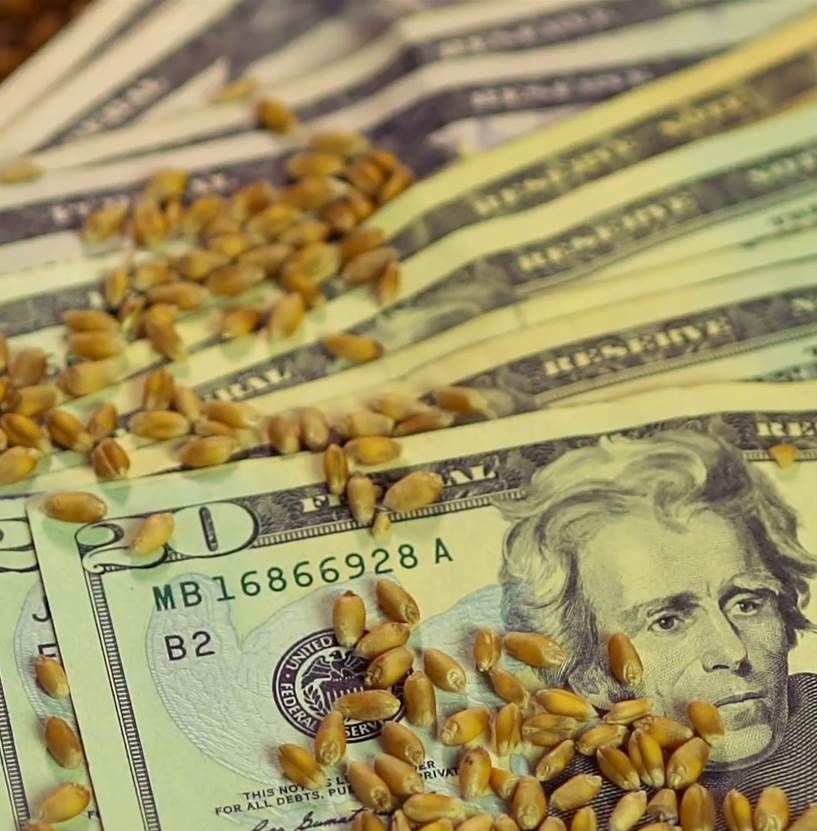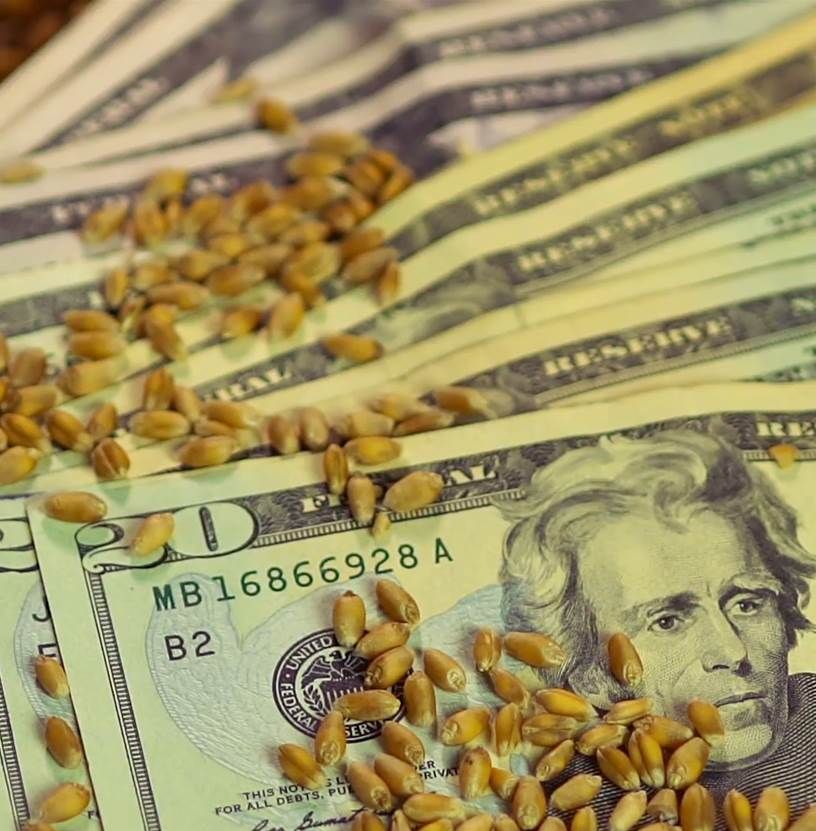The seed faith doctrine is a false teaching based on a misinterpretation of the parable of the sower, as told in Matthew 13. The teaching claims that if one ‘sows a seed’—money—a physical ‘harvest’ will follow. The Bible encourages us to give. However, there’s no guarantee we’ll receive a return based on our own expectations. The actual meaning of the parable is spiritual. It’s not about obtaining material wealth. Let’s look at the sow a seed of faith meaning.

Table of Contents
- What Is a Parable?
- No Need for Misinterpretation
- The Meaning of the Seed Parable
- The Lesson of the Seed Parable
- Frequently Asked Questions
- Outsmart the False Teachers
THE SEED FAITH Doctrine is a common teaching among prosperity gospel preachers and preachers who promote tithing. The basis of the doctrine is that when you sow a seed (money) in faith, God will bless you with a 30, 60, or 100-fold increase. The doctrine is based upon a misinterpretation of Jesus’ parable in Matthew 13:3-9 and Luke 11-15.
Matthew 13:3-9, KJV
3 And he spake many things unto them in parables, saying, Behold, a sower went forth to sow;
4 And when he sowed, some seeds fell by the way side, and the fowls came and devoured them up:
5 Some fell upon stony places, where they had not much earth: and forthwith they sprung up, because they had no deepness of earth:
6 And when the sun was up, they were scorched; and because they had no root, they withered away.
7 And some fell among thorns; and the thorns sprung up, and choked them:
8 But other fell into good ground, and brought forth fruit, some an hundredfold, some sixtyfold, some thirtyfold.
9 Who hath ears to hear, let him hear.
Luke 8: 11-15
11 Now the parable is this: The seed is the word of God.
12 Those by the way side are they that hear; then cometh the devil, and taketh away the word out of their hearts, lest they should believe and be saved.
13 They on the rock are they, which, when they hear, receive the word with joy; and these have no root, which for a while believe, and in time of temptation fall away.
14 And that which fell among thorns are they, which, when they have heard, go forth, and are choked with cares and riches and pleasures of this life, and bring no fruit to perfection.
15 But that on the good ground are they, which in an honest and good heart, having heard the word, keep it, and bring forth fruit with patience.
According to the Seed Faith Doctrine, the seed is money or so-called tithes. The sower is the believer, churchgoer, or Christian. The ground is a church and/or ministry. The 30, 60, and 100-fold increase refers to the financial return you will receive on your seed (money).
Is this what Jesus was teaching in his seed parable?
No.
In understanding what Jesus teaches in this parable, let us first look at what a parable is.
What Is a Parable?
Jesus often spoke in parables. A parable is a story that illustrates a moral/religious lesson or spiritual principle. Parables use symbolism and/or analogies. The symbolism and/or analogies Jesus used were inspired by everyday life, situations, or cultural references to which his disciples could relate.
In the case of the seed parable, Jesus uses the following agricultural/farming references for his symbols/analogy:
- Seed
- Sower
- Ground
- 30, 60, 100 fold increase
No Need for Misinterpretation
Interestingly, no one should misinterpret the parable because Jesus explains the parable’s meaning in Matthew 13:18-23 and Luke 8:11-15. Since Jesus clearly explains the parable, there is no need for an interpretation and no excuse for a misinterpretation.
Matthew 13: 18-23
18 Hear ye therefore the parable of the sower.
19 When any one heareth the word of the kingdom, and understandeth it not, then cometh the wicked one, and catcheth away that which was sown in his heart. This is he which received seed by the way side.
20 But he that received the seed into stony places, the same is he that heareth the word, and anon with joy receiveth it;
21 Yet hath he not root in himself, but dureth for a while: for when tribulation or persecution ariseth because of the word, by and by he is offended.
22 He also that received seed among the thorns is he that heareth the word; and the care of this world, and the deceitfulness of riches, choke the word, and he becometh unfruitful.
23 But he that received seed into the good ground is he that heareth the word, and understandeth it; which also beareth fruit, and bringeth forth, some an hundredfold, some sixty, some thirty.
The Meaning of the Seed Parable
In the parable, Jesus is talking to his disciples. He is telling them what to expect when they preach the gospel. He is preparing them for the realities of his ministry. Here is how Jesus explains the seed, the sower, the ground, and the 30, 60, and 100-fold increase:
• The seed is the word of God (gospel)
• The sower is the person who spreads the word of God (gospel)
• The ground is the heart and/or mind of people
• The 30, 60, and 100-fold increase refers to the different levels at which people receive the gospel and how much fruit they will bear when after receiving the gospel
The Lesson of the Seed Parable
There will be people who reject the gospel. Some people will receive the gospel up to a point, and others will completely embrace it. As a result, the gospel will impact their lives to varying degrees.
Jesus was not teaching a type of prosperity gospel or seed-faith doctrine in his parable. It is also clear that the Seed Faith Doctrine completely misrepresented what Jesus was teaching.
Beware of false doctrines! Read the Bible for yourself!
Don’t Miss Out on the Secrets of First Fruits: Click Here to Read Our Latest Article.
Frequently Asked Questions
What Is the Meaning of Seed Faith?
“Seed faith” is a concept popularized in some Christian circles, particularly within the Word of Faith and Prosperity Gospel movements. It’s based on sowing a financial “seed” (often a donation) in faith, expecting God to bless the giver with financial returns or other blessings.
The idea draws from verses that discuss sowing and reaping, like 2 Corinthians 9:6 (KJV): “But this I say, He which soweth sparingly shall reap also sparingly; and he which soweth bountifully shall reap also bountifully.” The “seed faith” teaching, related to guaranteed financial returns, is a modern interpretation and is controversial among Christians.
How To Have Mustard Seed Faith?
“Mustard seed faith” originates from Jesus’ teaching that even a tiny amount of genuine faith can produce significant results. To have mustard seed faith means to trust in God’s promises and power, even if one’s faith feels small or uncertain. Cultivating such faith involves prayer, studying the Word, trusting God in trials, and exercising faith daily.
Jesus said in Matthew 17:20 (KJV): “If ye have faith as a grain of mustard seed, ye shall say unto this mountain, Remove hence to yonder place; and it shall remove; and nothing shall be impossible unto you.” This emphasizes that even with a bit of genuine faith, believers can overcome seemingly insurmountable challenges.
What Is the Power of Seed Faith?
“seed faith” is rooted in sowing (giving or investing) in faith, expecting a divine return or blessing. The power of seed faith, as taught by its proponents, lies in the belief that when a believer sows something in faith—whether it’s money, time, or resources—God recognizes and honors that act of faith and returns blessings manifold.
The principle is often related to verses about sowing and reaping, such as Galatians 6:7 (KJV): “Be not deceived; God is not mocked: for whatsoever a man soweth, that shall he also reap.”
However, it’s important to note that while the Bible discusses sowing and reaping, the concept of “seed faith” as a financial transaction promising material return is a more contemporary interpretation and is viewed skeptically by many Christian theologians and believers.
Outsmart the False Teachers

If you want to know more about the false tithing doctrine, we recommend reading our book, The Tithing Hoax. We explore biblical and historical evidence for and against tithing in it. We also provide practical advice on how to give generously without tithing. Get your copy. Click 👉 👉 Here










